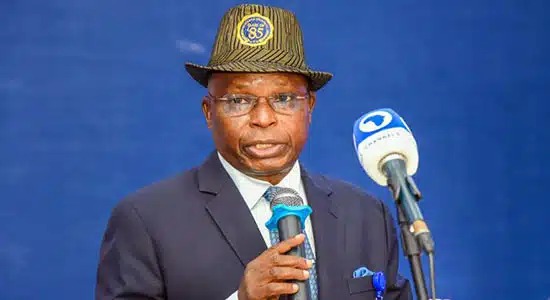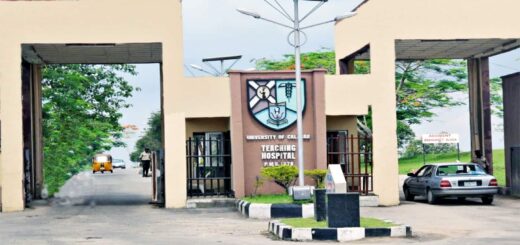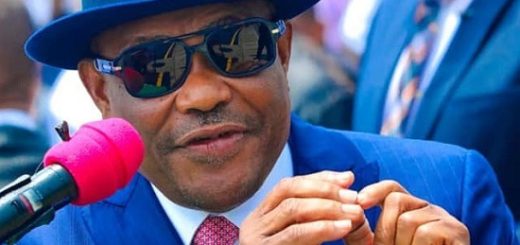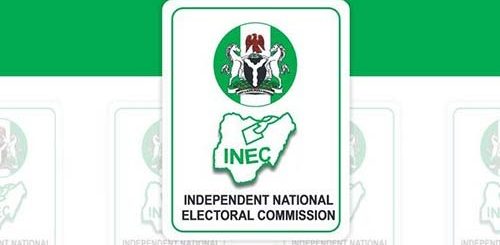AGF moves to block presidential pardon for corrupt leaders
 The Attorney-General of the Federation (AGF) and Minister of Justice, Lateef Fagbemi (SAN), has proposed a constitutional amendment to block presidential pardons for corrupt leaders, aiming to strengthen the fight against corruption.
The Attorney-General of the Federation (AGF) and Minister of Justice, Lateef Fagbemi (SAN), has proposed a constitutional amendment to block presidential pardons for corrupt leaders, aiming to strengthen the fight against corruption.
The proposal, made at a one-day roundtable organized by the Independent Corrupt Practices and Other Related Offences Commission (ICPC) in Abuja on Monday, seeks to exclude corruption cases from the prerogative of mercy.
The ICPC event, themed ‘Building a Unified Front Against Corruption in Nigeria,’ brought together State Attorneys-General, Commissioners for Justice from all 36 states, and representatives from civil society organizations, the private sector, and other stakeholders to enhance collaboration and strengthen anti-corruption efforts. The roundtable was supported by the MacArthur Foundation.
According to the Minister of Justice, the proposed amendment will be pursued in the next constitutional review to ensure that corrupt leaders face the full weight of the law.
The AGF stated that the proposal would be a significant step toward addressing corruption in Nigeria, a major concern for citizens and the international community.
Several high-profile individuals convicted of corruption in Nigeria have previously received presidential pardons.
Notable examples include the former Governor of Bayelsa State, Diepreye Alamieyeseigha, pardoned by President Goodluck Jonathan in 2013, and the former Governor of Delta State, James Ibori, who received a pardon in 2015.
The AGF said, “I have always believed that no one can claim to know everything, and it is through collaboration with others that we achieve the best results. United we stand, divided we fall. In the fight against corruption, everyone is a stakeholder. Believe me, everyone is involved.
“In fighting corruption, we need to focus on the facts, not on where someone is from or their religion. If someone is accused of embezzling money, the focus should be on the facts of the case.
“I suggest that in our next constitutional amendment, matters of corruption should be excluded from the prerogative of mercy. This is the only way we can progress.
“We want to return to an era where showing your passport and mentioning your profession automatically earns you respect. When we travel outside the country, and you reach immigration or border stations, they first ask you, ‘What work do you do?’ Sometimes you feel like hiding your passport, but you have to show it.
“Let us return to this approach when dealing with corruption. We should also avoid the trend of public sentiment influencing actions, especially in Nigeria, where political polarization is rampant. Investigations should be thorough, and charges should be clear and concise.”
Chairman of the Senate Committee on Anti-Corruption and Financial Crimes, Senator Osinakachukwu Ideozu, lauded the proposal, noting that corruption undermines institutions and stifles development. He reiterated the Senate’s commitment to supporting anti-corruption initiatives.
Ideozu stated, “Corruption is not just a legal challenge; it is a social cancer that erodes trust, undermines institutions, and stifles development. It is a problem that requires a comprehensive and multifaceted approach, involving every segment of our society.
“As State Attorneys-General, you hold significant responsibilities in the administration of justice at the state level, and your role in this fight cannot be overstated.
“We must ensure that our justice system operates with the highest level of integrity, where the rule of law is upheld, and where there is no place for corruption to take root. Prevention is always better than cure.”
ICPC Chairman, Dr. Musa Adamu Aliyu (SAN), emphasized the importance of collaboration between the ICPC and State Attorneys-General in preventing corruption and promoting good governance.
He explained that the ICPC has been working to strengthen its anti-corruption efforts through preventive measures and enforcement.
Specifically, Aliyu said that the National Anti-Corruption Strategy (NACS) will be enhanced through collaboration.
He stated, “Corruption is a complex problem that has permeated all aspects of life and suppressed development in Nigeria. Both Federal and State institutions are stunted because of multiple harmful practices, greed, and impunity.
“Reaching institutions at the State level requires the involvement of State officials. It demands expertise, collaboration, informed strategies, and knowledge sharing. Knowledge and expertise are not based in one place and are not easily acquired without a determined and focused pursuit, with adequate resources.
“This collaboration with the Attorney General can lead to more effective preventive strategies, enhanced inter-agency cooperation, and a more corruption-resistant public sector. We can also win the confidence of the public in government institutions and the criminal justice system in particular.”
Chairman of the House Committee on Anti-Corruption, Rt. Hon. Kayode Moshood Akiolu, assured the ICPC of legislative backing, stating that the House of Representatives is committed to playing its legislative role in ensuring the federal government’s success in the anti-corruption fight.
Akiolu said, “At a period in our national life when the economy is struggling, citizens are grappling with existential issues, and the government needs all the resources it can get to execute developmental projects and pull our country out of the woods.
“The need to rein in corruption and plug revenue leakages has never been greater. To the uninitiated, it might seem like the government does a lot of talking. But the truth is that corruption is a complex phenomenon to contend with.
“Corruption is a national problem; it is not a federal problem. All hands need to be on deck to help steer the ship of state from corruption-infested waters and onto safe waters where national development can thrive.”
Keynote speaker, Chief Kanu Agabi (SAN), emphasized the need for a unified front against corruption, while Chairman of the Senate Committee on Anti-Corruption and Financial Crimes reiterated the Senate’s commitment to supporting anti-corruption initiatives.
According to him, this development will boost the federal government’s anti-corruption drive and promote accountability among public officials.
A panel discussion, moderated by former Lagos State Attorney-General, Moyosore Onigbanjo (SAN), featured experts including Mr. Ekpo Nta, former Chairman of ICPC, Prof. Mohammed Tabiu (SAN), Prof. Abdulkarim Kana (SAN) (Designate), and Barr. Hauwa Abubakar, Attorney-General of Borno State.
The discussion identified key challenges and opportunities for enhancing anti-corruption efforts, including addressing corruption-inducing social norms, promoting public education and awareness, and strengthening institutional frameworks.













